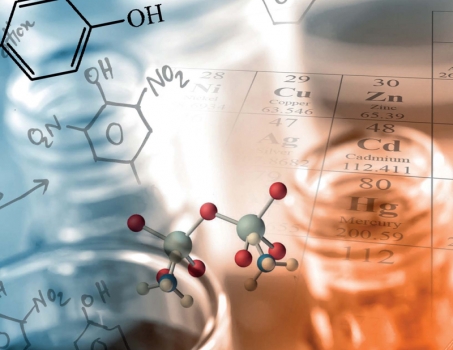
Biochemicals
The term biochemicals encompasses a huge diversity of substances, both those which occur naturally as well as those which have been manufactured to be identical. Included within our biochemicals product range are hormones, vitamins, growth factors, pheromones, antibiotics and fluorophores; this category also incorporates various drugs. Biochemicals are regularly employed as key reagents within biological assays, during which they can act as inhibitors, agonists, antagonists, activators, ligands or detection moieties, as well as performing a multitude of other functions.
Fluorophores
Fluorophores have the ability to absorb light at a particular wavelength and then emit it at a higher wavelength as they release energy and return to their ground state. This property is regularly exploited in techniques which rely on an immunofluorescent readout, such as microscopy and flow cytometry; by conjugating antibody reagents to fluorophores it is possible to detect even low abundance targets with an extremely high degree of specificity, as well as constructing highly sophisticated multiplexing experiments. In addition to fluorophore-conjugated antibodies, Biozol offers an extensive range of additional fluorophore products including dyes, fluorophore-labelled proteins and peptides, streptavidin-fluorophore conjugates and other fluorescent reagents.
Antibiotics
Antibiotics are regularly employed as a selective pressure in cell cultures, for example allowing the growth of only those organisms which have been successfully transfected with a gene encoding antibiotic resistance. Another common application is to use them for spiking control wells and constructing a standard curve on assay plates; relevant controls and standards are essential for the sensible interpretation of experimental data. As an example, staurosporine, originally isolated from a strain of Streptomyces bacterium, is regularly used as a control in kinase assays since it is highly potent, demonstrates good cell permeability, and inhibits numerous kinase enzymes.
Inhibitors
Inhibitors are often included in biological assays since they provide a benchmark against which the potency of test compounds can be assessed. In many cases these reagents may be commercially available formulations of drugs which have already demonstrated successful inhibition of a particular target, for example LY294002 which is a potent inhibitor of PI3-kinases. Furthermore, by using inhibitors to construct a standard curve on each individual assay plate they provide an indication of the consistency of assay performance between plates, across screening days, and throughout the entire duration of a research project.
Growth factors
Growth factors play important roles in the regulation of various cellular processes, for example stimulating proliferation, apoptosis or cellular migration. Although foetal bovine serum (FBS) is often added to cell culture media as a source of various growth factors, in many cases it is necessary to add further supplements to facilitate optimal growth. Common applications for growth factors within cell culture include the addition of erythropoietin (EPO) to increase red blood cell production, the use of granulocyte-macrophage colony-stimulating factor (GM-CSF) to enhance proliferation and activation of monocytes/macrophages, and the inclusion of epidermal growth factor (EGF) in stem cell growth media to help maintain these cells in culture.
Vitamins
Cell culture media often requires supplementation with additional components such as vitamins, and many basal media preparations are manufactured to contain these. The addition of FBS provides a source of vitamins, yet it can often be necessary to boost the vitamin concentration further still; a popular approach to this is to add small volumes of a concentrated vitamin solution so that the constitution of the underlying media preparation is not altered significantly. As well as supporting cellular growth, vitamins are also used regularly within various studies; for example vitamin D has been shown to affect cellular differentiation via a range of mechanisms.
Biozol offers an extensive range of biochemical products, including fluorophores, antibiotics, inhibitors, growth factors, vitamins, and more. These can easily be searched using the selectable filters.



